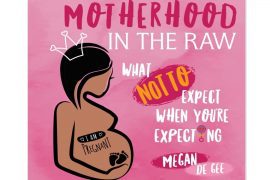By Kate Barnes
Zinc is essential for strong immune function and essential to our diet, i.e. it must be consumed in the diet for sufficient requirements.
Zinc helps with 100s of enzymatic reactions, necessary for chemical reactions, facilitating protein folding and in regulating gene expression! It’s critical for healthy development and maintenance.
And unfortunately … most people are chronically deficient, making them susceptible to viral infections and disease. I explain why, along with the link to covid-19.
… As many as 2 billion people around the world have diets deficient in zinc, and studies are raising concerns about the health implications this holds for infectious disease, immune function, DNA damage and cancer.
Dr Joseph Mercola
Zinc & Chloroquine
You may have read about a drug that’s being used in some countries, e.g. China and South Korea to treat covid-19 with almost 100% success rate – chloroquine. It’s a drug that’s historically used to treat malaria and other infections for 75 years or more.
The efficiency of chloroquine is based on its ability to efficiently transport zinc into the cell. Once in the cell, zinc works to block/prevent the viral replication.
This treatment is working successfully against covid-19, as are cases of high dose vitamin C.
Several studies (cited below) show zinc has an antiviral affect, i.e. blocking or preventing viral activity within the cell, including respiratory infections and pneumonia.
Sufficient levels of the nutrient zinc are important for a healthy immune system and the ability to ward off viral infections, including pneumonia.
Signs of zinc deficiency:
- Zinc deficiency during growth periods, e.g. infancy and puberty, results in growth failure.
- Diarrhoea can be a sign of severe deficiency.
- Susceptibility to pneumonia.
- Metabolic disease such as insulin resistance may also be linked.
- Loss of taste and sense of smell (which people can get used to without realising).
10 more important reasons for zinc:
- Nutrient absorption. Zinc is an active agent in our body’s ability to metabolise food and nutrients. If zinc levels are low, we won’t absorb food/nutrients effectively.
- Metabolism. It is also involved with triggering over 100 differing internal enzymes required for many metabolic actions. Zinc is critical for a healthy metabolism.
- Immunity. Zinc is also crucial for the health of our immune system.
- Healthy muscle growth. Zinc aids cell division and cell growth so it’s necessary for maintaining muscles and our skeletal system. It’s therefore particularly important in pregnant and lactating women and for growth in children.
- Wound healing. Zinc plays a role in the body’s ability to heal itself after an injury. It’s important for our sense of smell and is commonly linked to healthy eyes, skin and hair.
- Eye health. Zinc is needed to convert vitamin A into its active form and to maintain good vision.
- Balances hormones and supports reproductive health. It’s needed to help produce estrogen and progesterone. It also increases testosterone naturally, which has many roles for both men and women.
- Balances blood sugars. Zinc helps balance insulin, the main hormone involved in the regulation of blood sugar.
- Brain health. Zinc may act as a kind of sedative mineral on the central nervous system, acting as a calming agent and helping us to manage stress better.
- Promotes a healthy gut. One of the cornerstones of a healthy gut is strong stomach acid. Zinc is needed to help in the manufacture of our stomach acid. If you or your children suffer from reflux, consider zinc.
Depleted soils, stress, poor diet, chemicals and chronic illness are just a few of the many factors that deplete our zinc exposure and absorption. The body doesn’t store zinc so we need to make sure we get enough in our diet.











